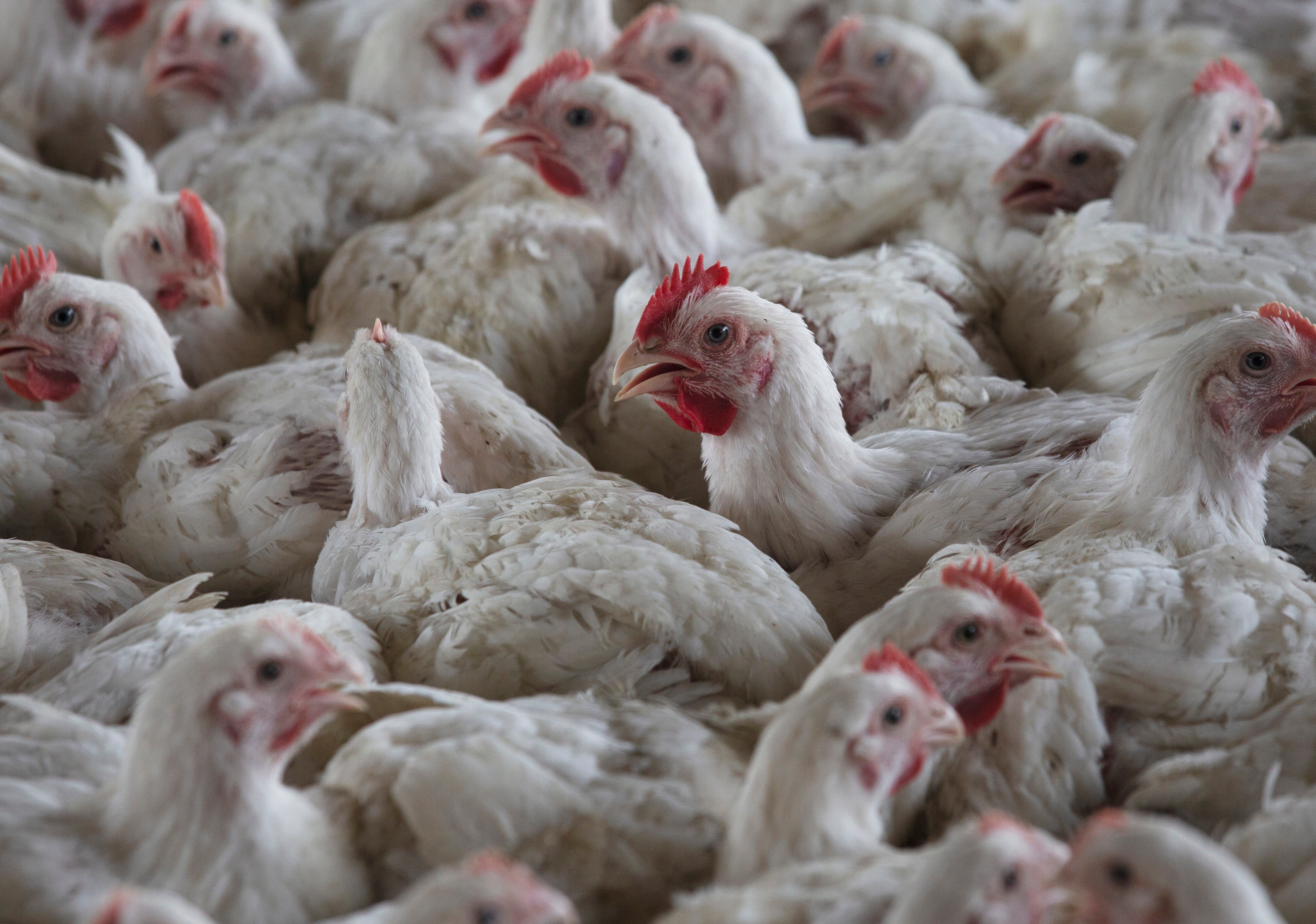South Africa culls nearly 2.5M chickens in effort to contain bird flu outbreaks
The South African government says nearly 2.5 million chickens have been culled in an effort to contain outbreaks of two separate strains of avian influenza that have threatened to create a shortage of eggs for consumers

Your support helps us to tell the story
From reproductive rights to climate change to Big Tech, The Independent is on the ground when the story is developing. Whether it's investigating the financials of Elon Musk's pro-Trump PAC or producing our latest documentary, 'The A Word', which shines a light on the American women fighting for reproductive rights, we know how important it is to parse out the facts from the messaging.
At such a critical moment in US history, we need reporters on the ground. Your donation allows us to keep sending journalists to speak to both sides of the story.
The Independent is trusted by Americans across the entire political spectrum. And unlike many other quality news outlets, we choose not to lock Americans out of our reporting and analysis with paywalls. We believe quality journalism should be available to everyone, paid for by those who can afford it.
Your support makes all the difference.South Africa has culled nearly 2.5 million chickens in an effort to contain dozens of outbreaks of two separate strains of avian influenza that have threatened to create a shortage of eggs for consumers and are hitting an industry already struggling due to an electricity crisis, the government said on Tuesday.
Another 205,000 chickens have died from bird flu in at least 60 separate outbreaks across the country, with more than half of those outbreaks in Gauteng province, which includes the country's biggest city, Johannesburg, and the capital, Pretoria.
Some grocery stores in Johannesburg were limiting the number of eggs customers were allowed to buy this week — in some cases to one carton of six eggs — and the government acknowledged there were “supply constraints.”
The government was moving to fast-track new import permits for companies to bring in eggs from other countries “to ensure sufficient supplies for consumers,” Agriculture Minister Thoko Didiza said. Her ministry is also considering embarking on a vaccination program to halt the bird flu outbreaks and said the number of farms with cases was increasing.
Neighboring Namibia has banned chicken meat and egg imports from South Africa.
The South African Poultry Association said the outbreaks were the worst since 2017.
Wilhelm Mare, chairman of the poultry group in the South African Veterinary Association, said 8.5 million egg-laying chickens could be affected, as well as another 2.5 million chickens used in the meat production business.
“It tells me we’re going to have problems with this situation for quite a while,” Mare said, calling it “catastrophic” for the industry.
The United States' Centers for Disease Control and Prevention said last month that bird flu outbreaks were on the rise globally, with more than 21,000 outbreaks across the world between 2013 and 2022. Bird flu only rarely infects humans.
Eggs are an important and affordable source of protein in South Africa, but prices had risen steadily this year and the shortages caused by bird flu were expected to push prices up again and add to high food inflation for South Africans.
The chicken industry in South Africa has already been hit hard this year by power shortages, which have resulted in regular electricity blackouts to save energy and have badly impacted businesses.
South African farmers said in January they had been forced to cull nearly 10 million young chicks, as Africa's most advanced economy experienced record blackouts at the start of the year, causing production to slow dramatically and leading to overcrowding on chicken farms.
___
AP Africa news: https://apnews.com/hub/africa